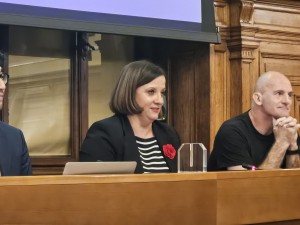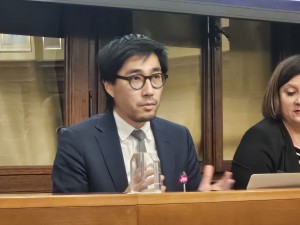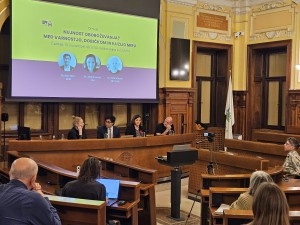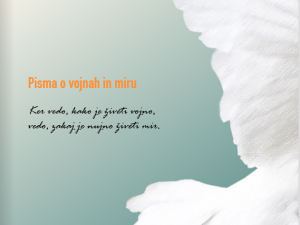Living Peace 3: Letters of Wars and Peace
8. 1. 2025 | Politics
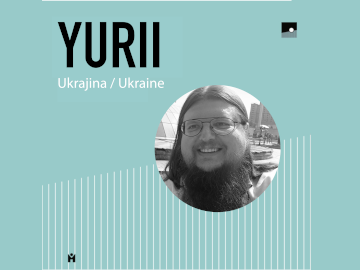
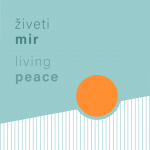 At the end of 2022, we at the Peace Institute, started organizing a series of public events entitled Thinking Peace as a response to the multitude of armed conflicts around the world. Since the world has been spiralling into dangerous global militarization, we wanted to rethink what is war, what is peace, and more importantly how to ensure a stable peace which would not be quickly engulfed in new conflicts and wars.
At the end of 2022, we at the Peace Institute, started organizing a series of public events entitled Thinking Peace as a response to the multitude of armed conflicts around the world. Since the world has been spiralling into dangerous global militarization, we wanted to rethink what is war, what is peace, and more importantly how to ensure a stable peace which would not be quickly engulfed in new conflicts and wars.
We want to expand on the Thinking Peace cycle and add new dimensions to imagining peace. With the help of amazing individuals worldwide, we are beginning a new series of public letters written by people whose lives were interrupted by war or who found themselves in a recent armed conflict. We have titled this series of letters as Living Peace to emphasize how important peace is and that people often only realize this importance when facing the brutality of war. We want to illustrate how people from Palestine, Ukraine, Rwanda, Bosnia and Herzegovina, Croatia, Serbia, Syria, Sudan, Afghanistan, Congo, Yemen and elsewhere think publicly about peace. How do the inhabitants of these regions face wars and military conflicts? What lessons can we learn from their intimate experiences and existential fears?
While opinions of world leaders who justify or even defend wars, dominate today’s media spheres, we want to amplify the voices that defend peace, reject violence and recognize equal rights for all. Having experienced war, they understand why it is essential to live in peace.
The third letter we are publishing was written by Yurii from Ukraine:
“Despite a seizure of my computer and smartphone, a search, house arrest, and ongoing proceedings threatening me with 5 years of prison, I am determined to advocate peace anyway, even behind bars, if forced to.”
LETTER BY YURII FROM UKRAINE
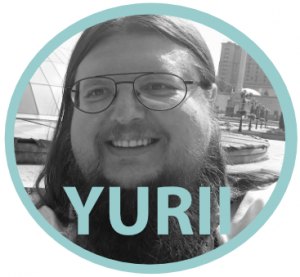 Ukraine is anxious today: taxes are raising, dark winter is coming, military recruiters lurk everywhere, and people are not sure whether the West will perform a miracle and help us to defeat Russia.
Ukraine is anxious today: taxes are raising, dark winter is coming, military recruiters lurk everywhere, and people are not sure whether the West will perform a miracle and help us to defeat Russia.
Kyiv, the capital of Ukraine where I live, has better air defense than other cities. But even in Kyiv Russian drones could fly from vicinity to the centre of city, to a building of the parliament, Verkhovna Rada, which apparently was one of recent targets, but a drone was timely downed almost there.
Hearing the howl of air raid alert, I hurry to the closest shelter in an underground parking. Even in Kyiv, UAVs of Putin’s army sometimes crash into houses, causing fire and casualties. In other Ukrainian cities the drones, aerial bombs, rockets and artillery unleashed by the Kremlin tyrant destroy homes, hospitals, schools, churches and whole civilian districts, killing and wounding people.
Russian army deliberately destroys electrical grid and central heating, there were and there are expected to be emergency and planned blackouts. My family has a pile of chargeable portable power stations and a car cabin heater in the case, to secure at least some warmth in our cold winter flat.
People are tired of war but don’t want to end it until Russia will be defeated. The fight for survival became a key to popular understanding of world politics: there is the northern enemy and Western allies, and those who are not helping Ukraine to fight against the aggressor are considered as playing at the enemy’s hand, if not his accomplices.
The degree of hostility towards Russia, understandable after all the death and destruction inflicted on Ukraine, is reminded to me every day by a warning at the doors of a supermarket near my home. It has graphic signs: no smoking, no pets, and no Russians, depicted as a burly sharp-teeth troll with balalaika in a red circle, crossed out.
In this war-centered view Ukraine fights for the victory of NATO and EU to join both, considering them cornerstones of international order, while the United Nations is pitiable and ignorantly despised for perceived accommodation of Russia and inability to support Ukraine militarily.
People are obsessed with a cult of glorious and victorious Armed Forces of Ukraine despite, paradoxically, hundreds of thousands of men are evading conscription, paying huge bribes for medical exemptions or to bypass a ban to travel abroad on all men of conscription age, 18 to 60. Even the tiny minority who are not evading but declare conscientious objection and ask for alternative non-military service, mostly support the army.
Ukraine inherited militarism from the Soviet Union, where Stalin rooted out any dissent and deported to Siberia thousands of “anti-Soviet sectants,” explicitly for “propaganda”, i.e. preaching, against compulsory service in the Soviet army. Many of these “sectants” were from Ukraine, including the Kyiv region.
Ukrainian patriotic feminist pacifists, members of protestant churches and followers of Leo Tolstoy were sent to GULAG. In collections of Tolstoy’s writings published at that time you could not find “The Kingdom of God Is Within You”, “A Letter to a Student Concerning Law”, or anything alike: that’s how censorship works. Some might disagree, but I think that the recent renaming of a square in Kyiv named after Tolstoy into the “Square of Ukrainian Heroes” in foolish revenge to Putin was the same censorship.
No wonder that genuine pacifism and peace churches in Ukraine were marginalized, perhaps even eradicated, by such a terror. Though a few Ukrainian human rights defenders under Brezhnev’s rule managed to send from the political prison in Mordovia an open letter to the international community calling for “disarmament of hearts”, ending of ideological war, and release of political prisoners.
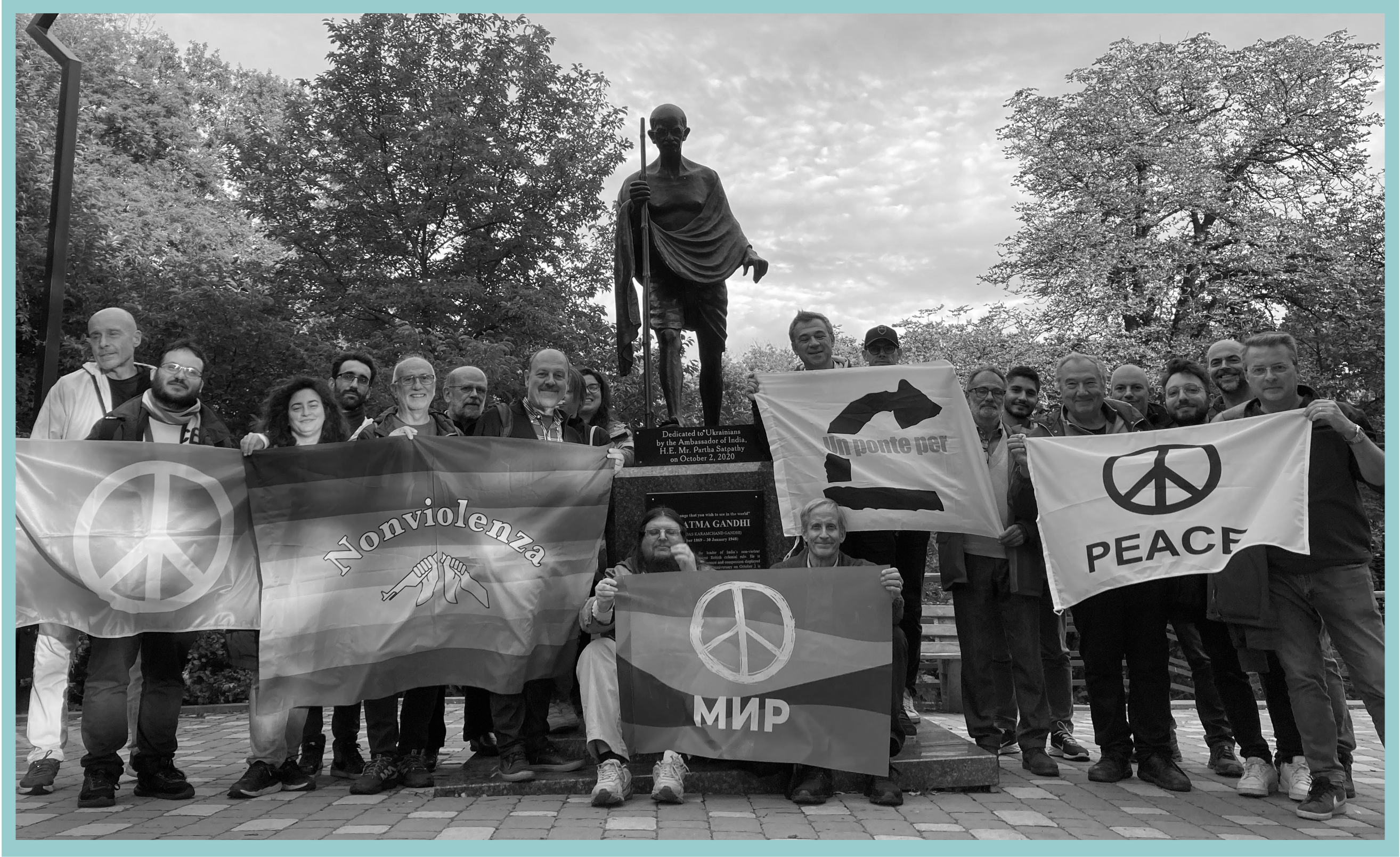
Eradication of consistent pacifists and organized communities didn’t help communists and does not help Russian imperialists and Ukrainian nationalists to suffocate the deep desire of peace in every heart. Putin could declare “foreign agents” and brutally repress anti-war activists. Security Service of Ukraine could initiate the prohibition and dissolution of the Ukrainian Pacifist Movement. But when military recruiters hunt for cannon fodder, people are hiding in their homes on both sides of the frontline, including Russia-occupied territories of Ukraine where civilians are forced to military registration and mobilization with detentions and inhuman treatment.
I personally know some of these people. They don’t want to be pacifists or take any other kind of stand, they just quietly resist militarism in a way many generations before did, while pretending to be loyal, to avoid all kinds of official and informal harassment for a lack of loyalty. If you send a letter to such a person, he will not receive it personally at the post office fearing a summons from the military recruitment centre and a draconian fine for failure to appear. For safety reasons he will ask relatives to check his mail.
Consider a lifetime member of Evangelical Christian Baptist Church, who was allowed to alternative service instead of conscription in peacetime. Currently leaders of his religious community support the war effort, promote use of weapons contrary to past teachings, and do nothing to save members true to their anti-war beliefs from arbitrary detention and forced transportation to military units, to frontline against their conscience. He was threatened with the same conduct, but spared because of age and health problems, instead fined 17,000 hryvnias, that is an unbearable sum for him.
Or consider my fellow pacifist, taken by force to the army, who refused to kill the enemies, allowed for kitchen duties, then after repeated denial in seeing his family reassigned to artillery contrary to his conscience. Disobedience is a crime severely punishable by a state, and obedience in his case is immoral, repugnant, and unthinkable. Army doesn’t recognize conscientious objection and neglects basic human rights; no wonder that people are running away. And the cult of army, facing almost no opposition, makes such an attitude unchecked and unaccountable. God save us from military dictatorship.
Lack of genuine and popular peace movements and churches because of systemic suppression and replacement with state-sponsored “peace through strength” activism is a serious post-Soviet problem both in Ukraine and in Russia.
I am happy that some efforts in my country to remedy all that were successful: we managed to create a pacifist movement five years ago, and recently established a Quaker meeting. When people lack secular practical knowledge of successful nonviolent action and it is hard to acquire it, I want to give hope for future peace at least through faith, but I continue to disseminate practical knowledge. Nearly twenty people enrolled into my School of Pacifism “Free Civilians”, and educational videos have thousands of views on YouTube.
Pacifist efforts are not welcomed by my government. I was ridiculously accused of a crime labelled “justification of Russian aggression” for sending a statement to President Zelensky titled “Peace Agenda for Ukraine and the World” in which I am actually condemning the assault along with any war, calling to nonviolent resistance to Russian aggression, diplomacy, and recognition of the right to refuse to kill. Despite a seizure of my computer and smartphone, a search, house arrest, and ongoing proceedings threatening me with 5 years of prison, I am determined to advocate peace anyway, even behind bars, if forced to.
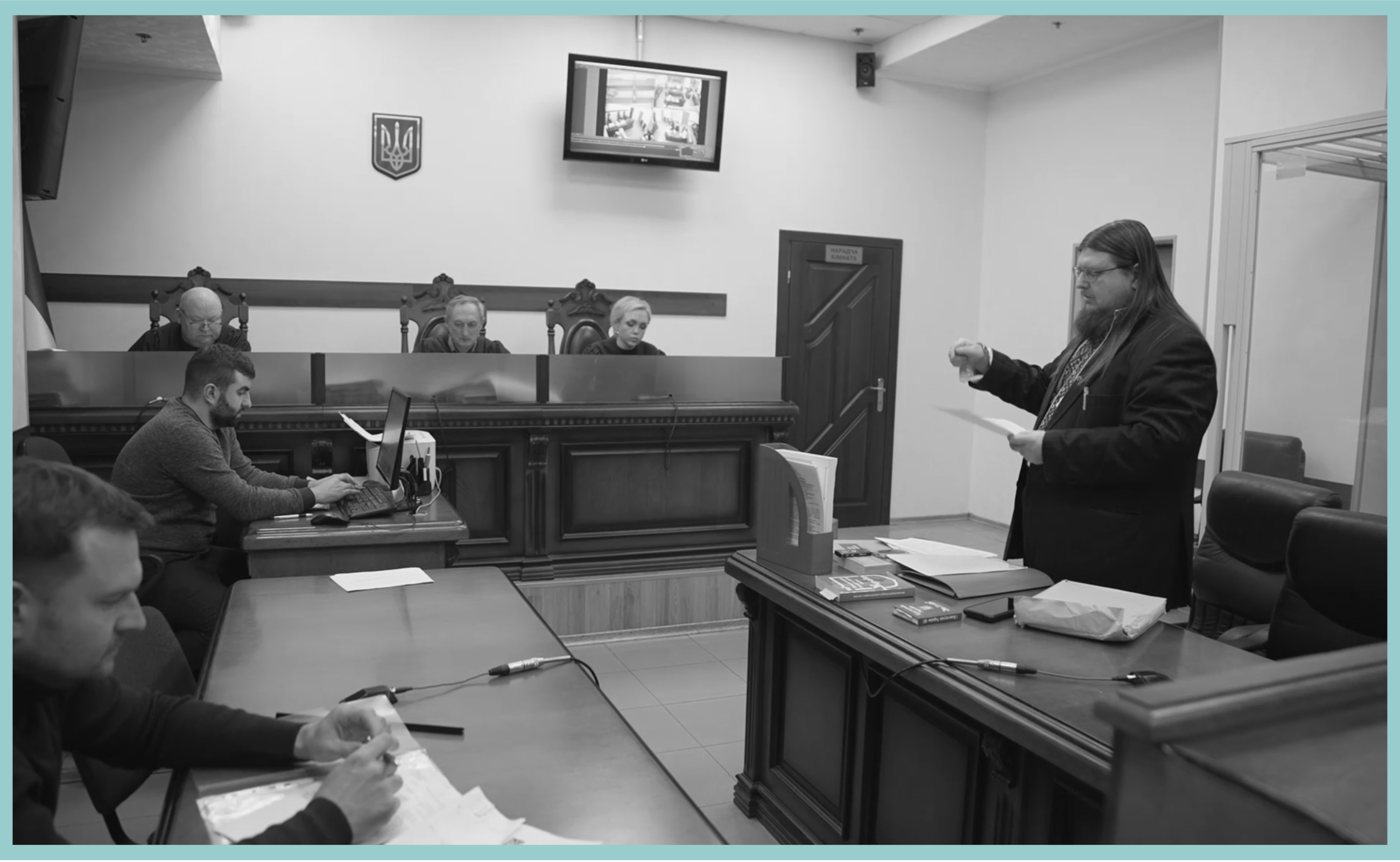
Some friends are doing similar peace work for longer time in Russia, facing much more harsh repressions and cruelties, and the rare protests against Putin’s war of aggression and mass unwilling to fight are results of their work that gives hope to get closer to the end of the war and change of the militarist regime threatening Ukraine, Europe, and beyond.
When Putin accuses those who criticize his war of aggression of treason, and his loyal war-blessing Russian Orthodox Church denigrates pacifism, it is no surprise. But I expected more from mainstream democratic media. Alas, they also sometimes are spreading the false narratives that pacifism is defeatism, and pacifists are the enemy agents, while in fact genuine pacifists are nonviolent resisters to aggressions and tyrannies and independently-minded agents of change for a peaceful future. Shifting blame for mass killings from militarists who organize it to pacifists who resist it went too far with toxic slogans “pacifism kills” and alike.
War is an archaic habit that kills people because they don’t know how to live, govern and protect themselves without excessive use of violence; disoriented by lack of successful communication experiences, people tend to believe that brutality is real action and dialogue is a waste of time.
Pacifism helps to get rid of this ignorant habit, advocating peace and conscientious objection to military service, educating people for nonviolent life, helping to play win-win games instead of win-lose scenarios easily turning into lose-lose realities.
We need to spread tirelessly the hope that all wars will cease in the world where everybody refuses to kill.
We need to convince with honest words and deeds the whole multi-billion human family on our common planet that this hope could and must come true, that we need to work together for our common peaceful future.
And we need to learn how to meet hopelessness with peaceful courage and resilience, and make the hope prevail.
Letter by Yurri in slovenian language | Read all letters | Thinking peace

